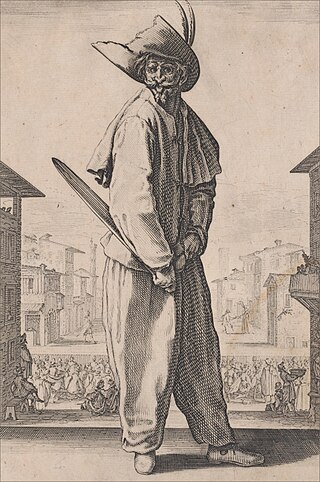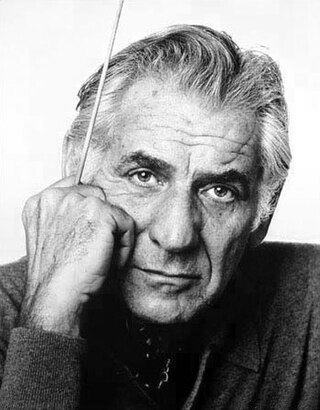Related Research Articles

Sir William Turner Walton was an English composer. During a sixty-year career, he wrote music in several classical genres and styles, from film scores to opera. His best-known works include Façade, the cantata Belshazzar's Feast, the Viola Concerto, the First Symphony, and the British coronation marches Crown Imperial and Orb and Sceptre.

Dame Janet Abbott Baker is an English mezzo-soprano best known as an opera, concert, and lieder singer.

The English Cat is an opera in two acts by Hans Werner Henze to an English libretto by Edward Bond, based on Les peines de coeur d'une chatte anglaise by Honoré de Balzac. The opera was first performed in a German translation by the Stuttgart Opera at the Schlosstheater Schwetzingen at the Schwetzingen Festival on 2 June 1983. The French premiere was at the Opéra-Comique, Paris in 1984. The first performance using the original English text was at Santa Fe on 13 July 1985. The UK premiere was at the Leith Theatre, Edinburgh, on 19 August 1987. A revised version was performed at Montepulciano in 1990 and this was given in London in 1991.

Façade is a series of poems by Edith Sitwell, best known as part of Façade – An Entertainment in which the poems are recited over an instrumental accompaniment by William Walton. The poems and the music exist in several versions.

Richard Sidney Hickox was an English conductor of choral, orchestral and operatic music.
Troilus and Cressida is the first of the two operas by William Walton, and was premiered in 1954. The libretto was by Christopher Hassall, his own first opera libretto, based on Geoffrey Chaucer's poem Troilus and Criseyde. Walton dedicated the score to his wife, Susana.

The Wandering Scholar, Op. 50 is a chamber opera in one act by the English composer Gustav Holst, composed 1929–30. The libretto, by Clifford Bax, is based on the book The Wandering Scholars by Helen Waddell.

Dorothy Dow was an American classical dramatic soprano who had an active international career in concerts, operas, and recitals during the 1940s through the 1960s. After retiring from the stage in 1968, she embarked on a second career as an academic.

Johannesburg Festival Overture is a composition for orchestra by the English composer William Walton, commissioned to mark the seventieth anniversary of Johannesburg in 1956. It is a short, lively piece, fast-moving throughout.
William Walton's Cello Concerto (1957) is the third and last of the composer's concertos for string instruments, following his Viola Concerto (1929) and Violin Concerto (1939). It was written between February and October 1956, commissioned by and dedicated to the cellist Gregor Piatigorsky, the soloist at the premiere in Boston on 25 January 1957.
Monica Sinclair was a British operatic contralto, who sang many roles with the Royal Opera, Covent Garden during the 1950s and 1960s, and appeared on stage and in recordings with Dame Joan Sutherland, Luciano Pavarotti, Maria Callas, Sir Thomas Beecham, Sir Malcolm Sargent and many others. She had a great gift for comedy, and sang in recordings of many of the Gilbert and Sullivan operettas, as well as in recordings from the standard operatic repertory.
Benjamin Britten's Piano Concerto, Op. 13, is the composer's sole piano concerto.
Antony Walker is an Australian conductor who currently resides in Washington, D.C. He has held the positions of musical director of Sydney Philharmonia Choirs, Chorus Master and staff conductor of Welsh National Opera, and is currently artistic director and Conductor of Washington Concert Opera and music director of Pittsburgh Opera. He co-founded Pinchgut Opera, the vocal ensemble Cantillation and the orchestras Sinfonia Australis and Orchestra of the Antipodes. Educated at Sydney Grammar School, and an honours graduate of the University of Sydney, Walker trained as a singer (tenor), pianist, cellist, and composer.
Improvisations on an Impromptu of Benjamin Britten is an orchestral piece by William Walton. It was first performed by the San Francisco Symphony Orchestra, conducted by Josef Krips, on 14 January 1970. Its European premiere was at Benjamin Britten's Aldeburgh Festival in June of that year. The work has subsequently been recorded for commercial release.

Scapino is a short work for large orchestra by William Walton, described by the composer as a "comedy overture". It was commissioned by the Chicago Symphony Orchestra and was first performed in 1941. A revised version was premiered in 1950.
The Quest is a ballet score by William Walton, written for a ballet of the same title, now lost, choreographed by Frederick Ashton in 1943. Two versions of the score exist: one for the small orchestra for which Walton wrote, and a posthumously constructed version rescored for an orchestra of the larger size usually favoured by the composer. The ballet, with a scenario by Doris Langley Moore, was based on The Faerie Queene by Edmund Spenser. It was first given by the Sadler's Wells Ballet company.
William Walton's Variations on a Theme by Hindemith is an orchestral piece in eleven continuous sections, first performed in 1963. It is a tribute to Walton's friend and fellow composer Paul Hindemith.
William Walton's Partita for Orchestra is a three-movement work for large orchestra, composed for, dedicated to and first performed by the Cleveland Orchestra and its conductor George Szell. The work was composed in 1957 and premiered on 30 January 1958.

A Song for the Lord Mayor's Table is a cycle of six songs with music by William Walton, first performed in 1962. The words, chosen by the librettist Christopher Hassall, are by six different British poets, two of them anonymous. Originally for soprano and piano, the cycle was later orchestrated. The work was premiered at Goldsmiths' Hall, London on 18 July 1962 by Elisabeth Schwarzkopf and Gerald Moore, during the City of London Festival. The orchestral version was first performed at the Mansion House, London on 7 July 1970, by Janet Baker with the English Chamber Orchestra conducted by George Malcolm.

Divertimento, or Divertimento for Orchestra, is a suite of eight orchestral bagatelles by American composer Leonard Bernstein. Completed in 1980 and written to celebrate the centenary of the Boston Symphony Orchestra, it is well-known for featuring the notes B and C in most of its melodic material.
References
Notes
Sources
- Holden, Amanda, (ed.), The New Penguin Opera Guide, New York: Penguin Putnam, Inc., 2001 ISBN 0-14-029312-4
- Kennedy, Michael, "Walton, Sir William", in Stanley Sadie, (ed.), The New Grove Dictionary of Opera, Vol. 4. London: Macmillan Publishers, Inc. 1998 ISBN 0-333-73432-7 ISBN 1-56159-228-5
- Kennedy, Michael, "Bear, The" in Stanley Sadie, (Ed.), The New Grove Dictionary of Opera, Vol. 1. London: Macmillan Publishers, Inc. 1998 ISBN 0-333-73432-7 ISBN 1-56159-228-5